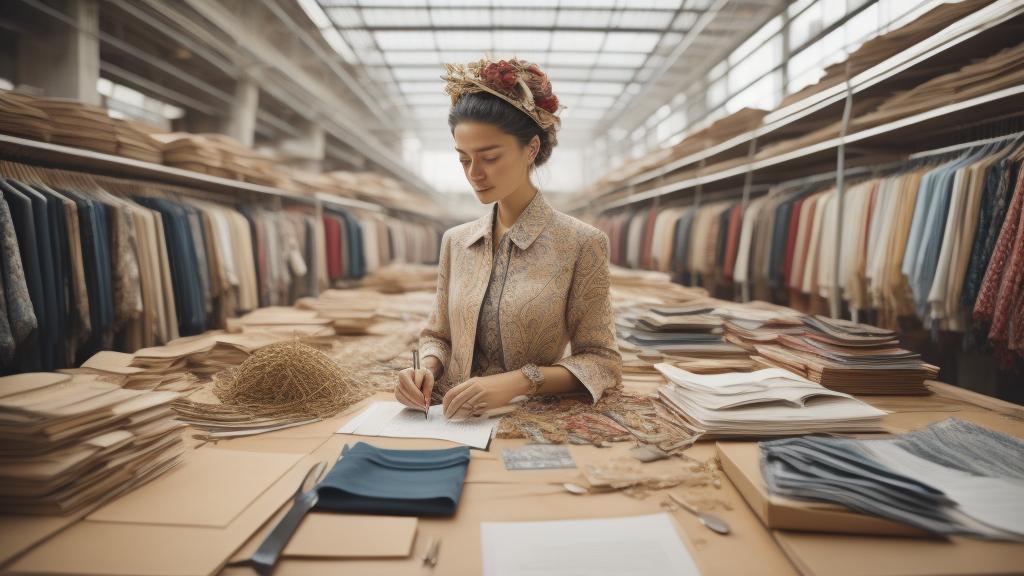In recent years, we've witnessed a seismic shift in the fashion industry, thanks largely to the bold influence of Gen Z. This digitally native generation is reshaping everything from design processes to ethical standards, pushing the boundaries like never before.
**Gen Z's Demand for Authenticity**
Gen Z has a radar for authenticity, and nothing makes them tune out faster than inauthentic branding. They crave real connections and genuine storytelling. Brands that fail to deliver an honest and transparent message find themselves falling behind. Balenciaga, for example, has embraced this shift by blending streetwear aesthetics with high fashion, creating a product line that feels both luxurious and relatable.
**Redefining Inclusivity**
Inclusivity isn’t just a buzzword for Gen Z; it's a prerequisite. Gone are the days when a token minority figure in a fashion show could suffice. This generation demands a broader representation of races, body types, and gender identities. Rihanna's Savage X Fenty has made a significant impact by featuring models of all shapes and sizes, setting a new standard for diversity in the industry.
**Sustainability Takes Center Stage**
Sustainability isn't just a passing trend for Gen Z – it's a lifestyle. They are driving the move towards slow fashion and the circular economy, compelling brands to adopt more sustainable practices. With the rise of platforms like Depop and Poshmark, second-hand shopping has become a fashionable choice rather than a last resort. Brands like Patagonia and Reformation are leading the charge, ensuring that sustainability is not just a marketing gimmick but embedded in their business models.
**Digital Revolution**
Being the first generation to grow up entirely in the digital age, Gen Z has an incredible fluency with technology. Their comfort with digital platforms is prompting a revolution in how fashion is marketed and sold. Virtual fashion shows, augmented reality fitting rooms, and digital-only fashion items are becoming commonplace. The collaboration between Gucci and Roblox, where users could purchase exclusive virtual items, is a testament to this digital evolution.
**Gen Z Entrepreneurs: Disrupting the Status Quo**
Interestingly, many Gen Zers aren’t just reshaping fashion as consumers; they’re stepping into roles traditionally dominated by older generations. Young entrepreneurs are bringing fresh perspectives and innovative business models to the table. Take Emma Chamberlain, whose coffee brand Chamberlain Coffee has gained a massive following, proving that Gen Z entrepreneurs understand their market like no other.
**The Power of Social Media Influencers**
Gen Z wields social media like a well-honed tool, leveraging platforms like TikTok and Instagram to influence fashion trends. Social media influencers command immense power; one viral post can make or break a product launch. Fashion brands now frequently collaborate with influencers to reach their target audience more effectively. Notably, Charli D’Amelio’s partnership with Hollister showcases how Gen Z influencers are setting new benchmarks.
**The Rise of DIY Fashion**
Another intriguing trend driven by Gen Z is the resurgence of DIY fashion. They are not afraid to take a pair of scissors to their jeans or customize their sneakers with unique designs. This hands-on approach speaks to their creativity and desire for individuality. It’s no wonder that thrifting and upcycling have gained so much popularity, allowing for one-of-a-kind wardrobe pieces.
**The Ethical Consumer**
Gen Z consumers are incredibly socially conscious. They demand that the brands they support align with their personal values, be it on issues like human rights, animal cruelty, or environmental stewardship. This is driving a wave of ethical consumerism, with brands being scrutinized for their practices more than ever before. Companies like Everlane and Allbirds are praised for their transparent and ethical manufacturing processes.
**Fashion Education: Preparing for the Future**
As fashion evolves, so too does the education surrounding it. Gen Z is looking for more than just traditional design skills; they seek knowledge in sustainability, digital marketing, and business strategy. Institutions are catching on, with programs that are now offering specialized courses to meet these needs. The Parsons School of Design, for instance, has integrated sustainability into its curriculum, preparing students to meet the demands of the future.
In conclusion, Gen Z's impact on the fashion industry is multifaceted and profound. Their insistence on authenticity, inclusivity, sustainability, and ethical practices is driving significant changes, nurturing a more conscientious and innovative industry. Brands that recognize and adapt to these evolving expectations are the ones that will thrive in this new era of fashion.
How Gen Z is reshaping the fashion industry from within

